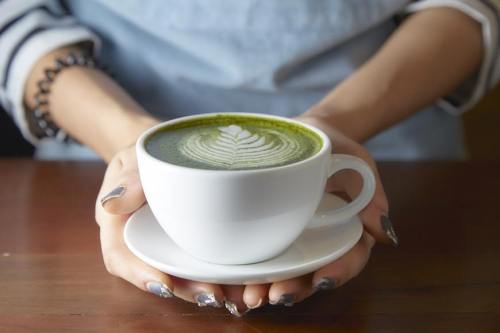What’s better for you, matcha or green tea? We asked a dietitian to find out
What's the difference between matcha and green tea, anyways? A dietitian breaks down the health and nutrition benefits of the two trendy drinks.

When it comes to hot green drinks, who comes out on top health-wise? Watch the video to find out.
Matcha is the avocado of wellness drinks—we just can’t get enough of it. It’s in our lattes, our baked goods, and even our skin-care products. However, as with any popular wellness trend, it’s easy to jump on the bandwagon without exactly knowing how it benefits your body. Isn’t matcha just fancy, rebranded green tea anyways?
Not quite! In the latest episode of Well+Good’s YouTube series You Versus Food, registered dietitian Tracy Lockwood Beckerman, RD, takes on the matcha vs green tea battle head-on. And she has some major tea to spill on the two beverages.
Both drinks are similar in that they come from the same Camellia Sinensis plant, Beckerman says. But that’s where their similarities end. “Green tea is made by steeping tea leaves in water,” she says—we’re drinking the the compounds that are released into the water. Meanwhile, matcha is made by dissolving ground tea leaves into water, meaning we’re drinking the actual leaves themselves. The leaves themselves are less processed than those used for green tea, she adds, and are typically richer in chlorophyll and antioxidants.
Matcha and green tea are each pretty healthy on their own. But as Beckerman explains, the difference in processing and brewing results in some different health benefits. One drink in particular stands out when it comes to antioxidant potency, caffeine content, and beneficial compounds like EGCG and the amino acid theanine. To find out which one wins in Beckerman’s book, you should probably watch the video above.
Here’s how to find and shop for the best, healthiest matcha. And another drink in-the-know wellness lovers are into: golden milk.
Sign Up for Our Daily Newsletter
Get all the latest in wellness, trends, food, fitness, beauty, and more delivered right to your inbox.
Got it, you've been added to our email list.










